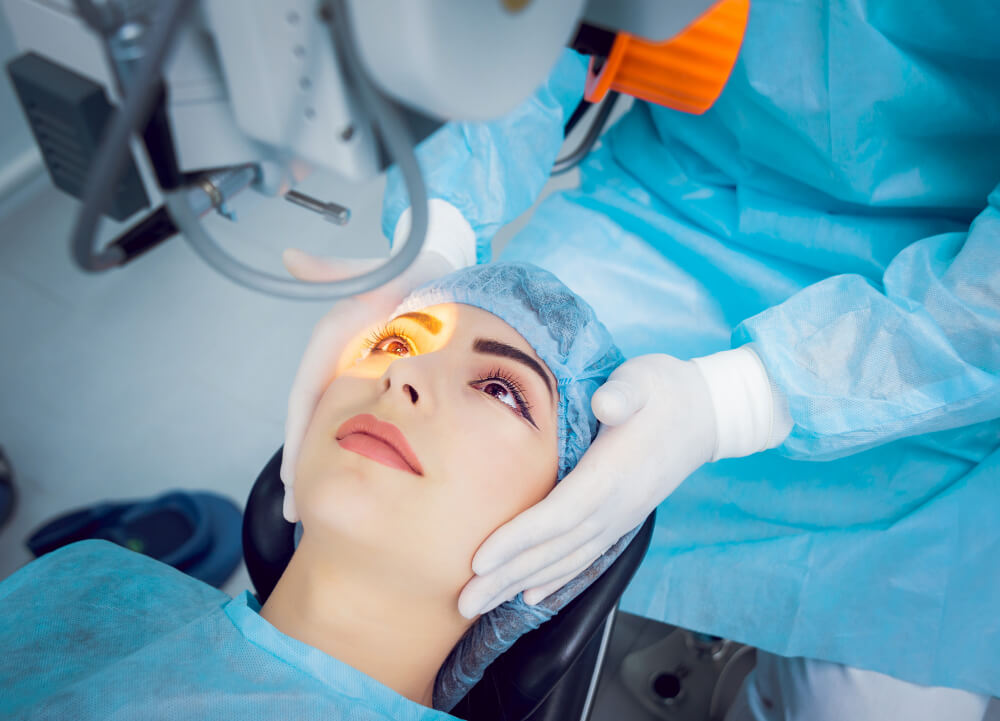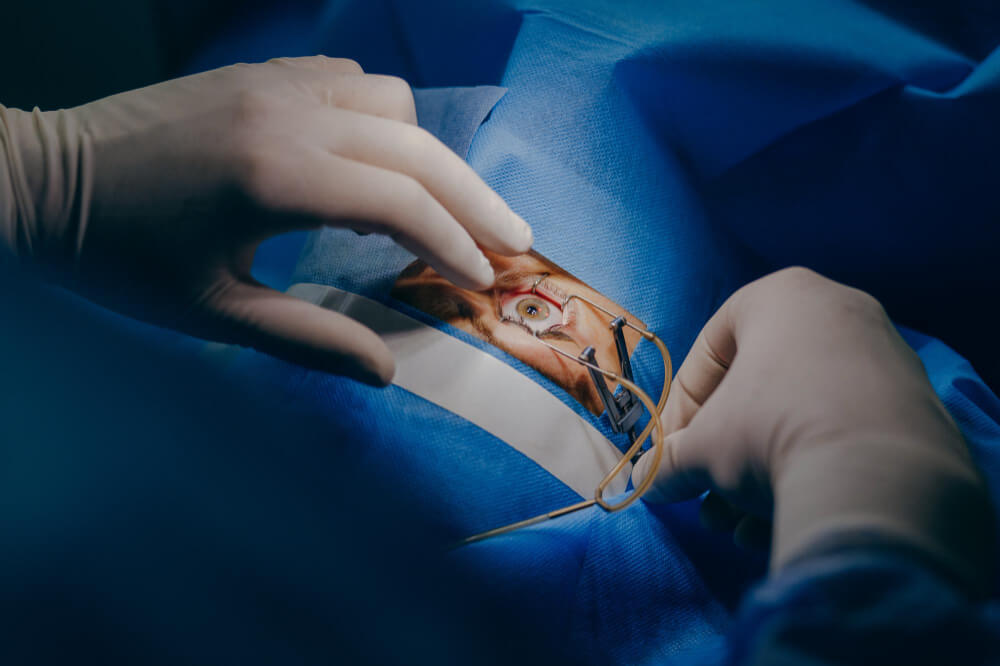
LASIK eye surgery is widely recognized as one of the most effective and trusted solutions for correcting vision, improving the lives of millions across the globe.
In fact, according to research, about 9 out of 10 people (90%) who undergo LASIK achieve vision between 20/20 and 20/40—without the need for glasses or contact lenses.
Long-lasting results and a quick recovery time are the major reasons for LASIK’s growing demand. One of the most frequently asked questions by those contemplating LASIK is: How long does LASIK last?
While LASIK has a proven track record, it’s essential to understand the factors that can influence its longevity and what to expect in the years following your procedure.
In this blog, we’ll explore the longevity of LASIK results, the key factors that influence how long your enhanced vision lasts, and practical tips to maximize its benefits.
What is LASIK Surgery?
LASIK, or Laser-Assisted In-Situ Keratomileusis, corrects common eye conditions like nearsightedness, farsightedness, and astigmatism.
In this simple procedure, a laser reshapes the cornea, the clear, dome-shaped part of the eye. By reshaping the cornea, the laser helps light enter the eye properly and focus on the retina, improving your vision.
The surgery is quick, usually taking only 10 to 20 minutes for each eye. Recovery is fast, and many people notice better vision right away. LASIK is an excellent choice for those who want to permanently say goodbye to glasses and contacts.
How Long Do LASIK Surgery Results Last?

LASIK eye surgery usually delivers long-lasting results. Once the procedure reshapes the cornea, the changes typically remain stable for most people, with many experiencing permanent improvements in their vision.
For the majority of patients, LASIK results can last a lifetime. They can enjoy improved vision without relying on glasses or contact lenses.
However, it’s essential to understand that while LASIK corrects your vision at the time of surgery, it doesn’t prevent future changes.
Factors That Affect the Longevity of LASIK Results
Several factors influence the longevity of LASIK results. By understanding these factors, you can better manage your expectations and take steps to maintain your eye health in the future:
1. Age
Age plays a crucial role in how long LASIK results last. For younger patients, typically in their 20s and early 30s, LASIK can provide long-lasting results.
As you age, your eyes naturally change. After 40, many people develop presbyopia, a condition that reduces the ability to focus on objects nearby. Unfortunately, LASIK cannot prevent this natural process.
In addition to presbyopia, age-related issues like cataracts may develop over time, affecting vision. While LASIK effectively addresses refractive errors at the time of surgery, you may still need reading glasses or other corrective treatments as you age.
2. Eye Condition Before Surgery
Another important factor is the stability of your eye condition before undergoing LASIK. If your prescription has remained stable for at least one to two years prior to surgery, you are more likely to enjoy longer-lasting results.
People with rapidly changing prescriptions may not benefit as much from LASIK, as their vision could continue to change even after the surgery.
3. Lifestyle factors
Your lifestyle choices can also impact the longevity of your LASIK results. Activities that expose your eyes to environmental stress, such as excessive sun exposure, smoking, or inadequate eye care, can negatively affect the health of your eyes and potentially shorten the lifespan of your LASIK results.
Proper eye care, such as wearing protective eyewear and maintaining overall health, plays a crucial role in prolonging the benefits of LASIK surgery.
LASIK Enhancement Surgery | When and Why You Might Need It

While LASIK is regarded as a permanent solution for vision correction, some patients may notice changes in their vision over time. For those who experience regression—where their vision begins to return to its original state—LASIK enhancement surgery may be necessary.
LASIK enhancement surgery is a follow-up procedure designed to fine-tune the results of the initial LASIK surgery. It’s typically recommended if your vision changes significantly after the first procedure or the original surgery didn’t correct your vision to the desired level.
Why LASIK is a Smart Investment for Long-Term Vision Health
Investing in LASIK offers long-term benefits that go far beyond just improving your vision. Although LASIK surgery costs around $2,200 per eye, it can save you money in the long run compared to the ongoing expenses of glasses, contacts, and related supplies.
For example, the average cost of a pair of eyeglasses is about $195, and this doesn’t even include additional pairs like prescription sunglasses or reading glasses.
In addition to cost savings, LASIK provides unmatched convenience. It can remove the need to clean, replace, or worry about contact lenses and eliminate the risk of breaking your glasses during sports or other activities.
With LASIK, you can live without the hassle of corrective eyewear.
Get Expert LASIK Results from Texan Eye | Schedule Your Consultation
Looking for the best LASIK to transform your vision? At Texan Eye, we’re committed to providing top-tier LASIK care with our latest technology to ensure the best possible outcomes.
Whether you’re eager to correct your vision or curious about the lasting benefits of LASIK, our experienced surgeons will guide you every step of the way.
Wondering how long LASIK lasts or if it’s the right choice for your needs? We are here to answer all your questions and help you make an informed decision.
Schedule a consultation with Texan Eye today to discuss your options, receive personalized advice, and start your journey toward clearer vision.
Conclusion
To sum up, LASIK surgery results can last a lifetime for most people, but it’s essential to understand that natural age-related changes in vision may still occur. By factoring in your age, eye condition, and lifestyle, you can better manage your expectations regarding LASIK’s longevity.
For those who experience regression or vision changes, LASIK enhancement surgery offers an effective way to restore optimal vision.
Overall, LASIK is a wise investment for long-term vision health and provides a more affordable and convenient alternative to glasses and contact lenses.
FAQs
LASIK is safe for most adults, typically those aged 18 to 40. After age 40, presbyopia (the natural loss of near vision) may affect LASIK results, but LASIK can still correct other refractive errors effectively.
LASIK surgery is generally not painful. The procedure uses anesthetic eye drops to numb the eyes so you will not feel any discomfort during the surgery. Afterward, some patients experience mild discomfort, such as a feeling of dryness or slight irritation, but this usually subsides within a few hours to a few days.
Some patients experience temporary dry eyes after LASIK. This is usually a short-term effect that resolves within a few weeks to months. In rare cases, dry eyes can persist, but they can typically be managed with lubricating eye drops or other treatments recommended by your doctor.
